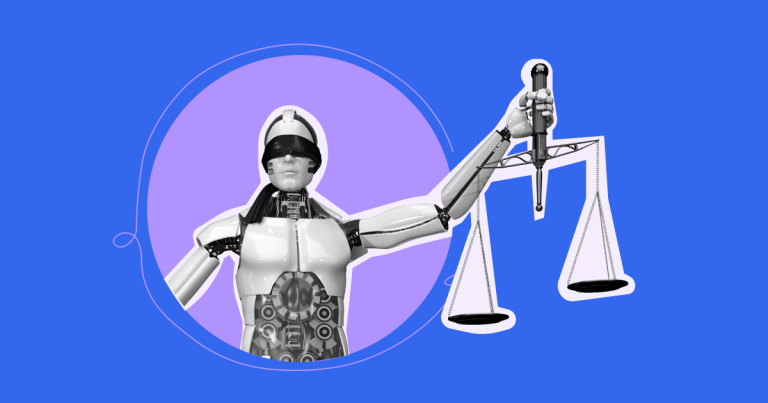The ability of information science is plain. From revolutionizing healthcare to personalizing on-line experiences, data-driven algorithms are reworking our world. Nevertheless, with this energy comes a essential duty — guaranteeing that algorithms are moral, unbiased, and truthful.
This weblog dives deep into the moral issues in knowledge science, specializing in the challenges of bias and equity in algorithms. We’ll discover the potential pitfalls of biased knowledge, focus on methods for mitigating bias, and spotlight the significance of moral frameworks within the improvement and deployment of information science options. We’ll additionally emphasize the function of a powerful basis in knowledge science ethics, achievable by means of a knowledge science certification course.
Think about a mortgage software system that persistently denies loans to folks from sure neighborhoods. Or a facial recognition algorithm that misidentifies people from particular ethnicities. These are just some examples of how bias in knowledge science algorithms can have severe real-world penalties.
Right here’s why bias in knowledge science algorithms is a essential concern:
- Unintended Discrimination: Biased algorithms can perpetuate societal inequalities by unfairly disadvantaging sure teams.
- Erosion of Belief: Lack of equity in algorithms can erode public belief in knowledge science and its functions.
- Diminished Effectiveness: Biased algorithms can result in inaccurate predictions and suboptimal outcomes.
Addressing bias in knowledge science is not only an moral crucial; it’s important for creating sturdy and efficient data-driven options.
Bias can creep into knowledge science algorithms at varied phases:
- Information Assortment: If the information used to coach an algorithm is biased (e.g., historic mortgage knowledge reflecting systemic biases), the ensuing mannequin will probably inherit that bias.
- Characteristic Engineering: The best way knowledge is remodeled and offered to the mannequin can introduce bias if options are chosen that unfairly drawback sure teams.
- Algorithmic Alternative: Totally different algorithms have various susceptibility to bias. Selecting an inappropriate algorithm for the duty can amplify present biases.
Understanding these potential sources of bias is essential for mitigating their influence on the ultimate mannequin.
Combating bias in knowledge science requires a proactive method. Listed below are some methods to think about:
- Information Cleansing and Augmentation: Determine and deal with biases in coaching knowledge by eradicating irrelevant knowledge factors and doubtlessly augmenting knowledge to characterize various populations extra precisely.
- Characteristic Choice and Engineering: Fastidiously choose options to your mannequin, guaranteeing they’re related and don’t unfairly drawback sure teams.
- Algorithmic Alternative and Analysis: Select algorithms recognized for his or her robustness to bias and use equity metrics alongside conventional efficiency metrics throughout mannequin analysis.
- Human-in-the-Loop Programs: Combine human oversight into essential decision-making processes powered by algorithms, guaranteeing equity and accountability.
By implementing these methods, knowledge scientists can create extra moral and accountable algorithms that serve society equitably.
Moral frameworks present a roadmap for knowledge scientists to navigate complicated moral points. These frameworks define key rules and pointers for knowledge assortment, mannequin improvement, and deployment.
Information science certification programs typically embody moral issues and related frameworks, equipping contributors with the data and instruments to make accountable selections all through the information science lifecycle. Right here’s how these programs may also help:
- Growing Moral Consciousness: Information science certification programs elevate consciousness of potential biases and the significance of constructing truthful and equitable algorithms.
- Understanding Moral Frameworks: Programs introduce college students to established frameworks just like the ACM Code of Ethics and Honest Isaac Ramsey (Honest) Act, offering a basis for moral decision-making.
- Embedding Moral Practices: By means of coursework and tasks, contributors study to combine moral issues into each step of the information science course of.
By fostering a tradition of moral knowledge science, we are able to be certain that the ability of algorithms is harnessed for good, selling equity and inclusivity in our data-driven world.
The potential of information science is immense, but it surely have to be balanced with a dedication to moral issues. Addressing bias and guaranteeing equity in algorithms is crucial for constructing belief, fostering inclusivity, and maximizing the optimistic influence of information science on society.
Information scientists play a essential function on this endeavor. By buying a powerful basis in moral knowledge science, doubtlessly by means of a knowledge science certification course, you may turn into a champion for equity. These packages equip you with the data, expertise, and moral frameworks to develop and deploy algorithms that aren’t solely highly effective but in addition accountable and inclusive.
Collectively, let’s pave the way in which for an moral future of information science — a future the place algorithms serve humanity with equity and justice on the core. Are you able to part of this essential motion?
Information science certification programs will be your stepping stone in the direction of changing into a accountable and moral knowledge scientist. Discover the huge array of packages obtainable, specializing in those who emphasize moral issues of their curriculum. Search for programs that cowl subjects like:
- Bias Detection and Mitigation Strategies: Learn to establish and deal with bias in knowledge assortment, function engineering, and mannequin choice.
- Equity Metrics and Analysis: Achieve experience in utilizing equity metrics alongside conventional efficiency metrics to make sure your fashions are equitable.
- Moral Frameworks and Tips: Develop a deep understanding of established moral frameworks and their software to real-world knowledge science tasks.
Data science certification courses not solely equip you with technical expertise but in addition empower you to method your work with a essential and moral lens. This mixture is crucial for constructing belief in knowledge science and guaranteeing its optimistic influence on the world.
The way forward for knowledge science is vibrant, but it surely hinges on moral issues. By taking a proactive method to mitigating bias and selling equity, we are able to harness the immense energy of information science to create a extra simply and equitable future for all.
Embrace the problem, enroll in a knowledge science certification course, and turn into a champion for moral knowledge science!
